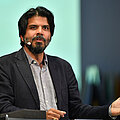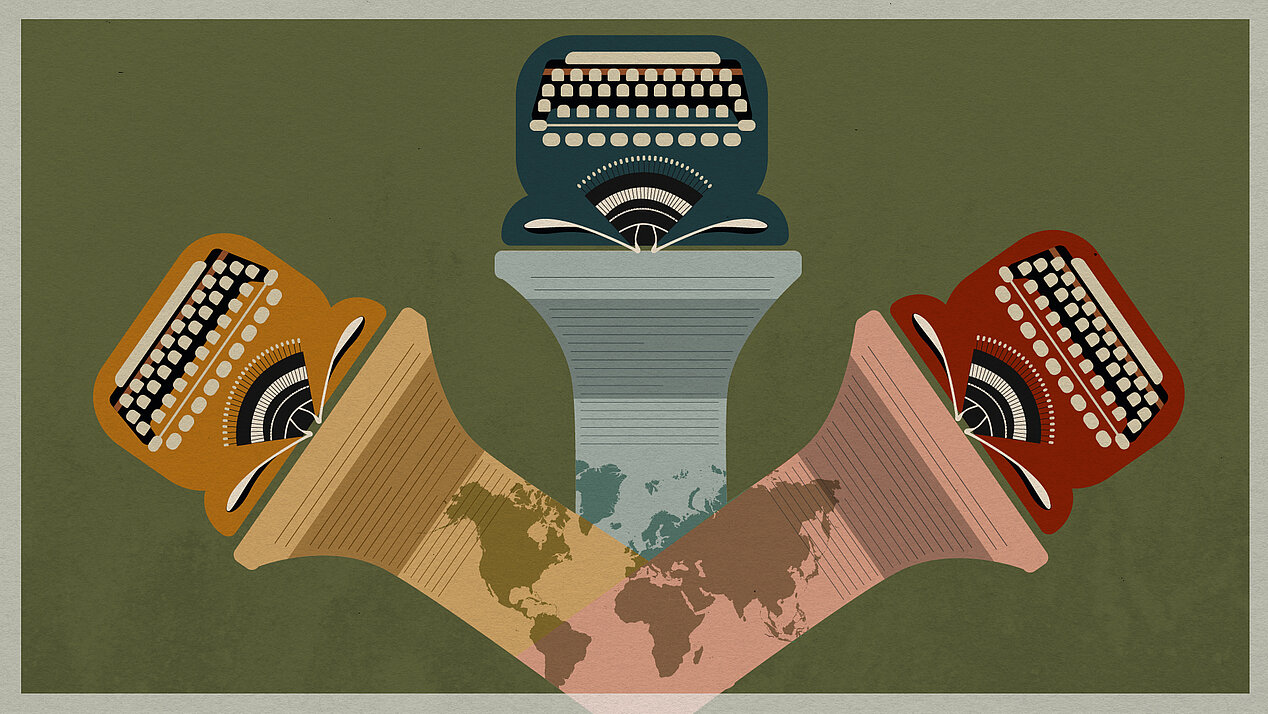My book From the Ruins of Empire is not an account of events in Europe. It is actually set in India, China, Egypt, Iran and Turkey, and other countries subjugated by European powers in the 19th century. The book’s leading figures are Asian intellectuals, writers and activists. It could be asked: in what way does learning about them advance Europe’s self-understanding? One way of answering this question is to say that Europe has always been present in my own self-understanding—and that of hundreds of millions of Asians.
Though born in India, in a home where English was not spoken, my own ambition to be a writer was shaped by European books. Some of these were English. Many of them happened to be German, in English translation, such as Thomas Mann and Hermann Hesse, and, later, Robert Musil and Hermann Broch.
Germany’s traumatic experience as a late modernizer – and the sociological insights generated by the work of Max Weber, Georg Simmel and the Frankfurt School – were, and remain, crucial in understanding many of the social and political aspects of the Indian nation state: its many economic crises, political volatility, and the widespread bourgeois and corporate longing today for an authoritarian leader.
A decade ago, I embarked on a book about the Buddha. The memory of the man and his ideas had faded in India even as large parts of Asia grew receptive to them. My initial guides were Schopenhauer and Nietzsche who wrote often and mostly approvingly of the Buddhism.
I knew these men as great European philosophers; the great prestige of their reputations validated and deepened my interest in an Indian philosophy largely forgotten in India. I also benefitted a great deal from the scholarship of German Indologists: Max Muellar, Hermann Oldenburg and Paul Deussen.
Many of this period’s greatest thinkers (…) sought to establish a German identity independent of Greco-Roman and Judeo-Christian traditions.
It may seem strange that in the late 20th century, an Indian writer should require the help of 19th century German thinkers in an exploration of his own historical and intellectual tradition.
But it was during the course of writing and researching a book about Buddhism that I came across another attempt at self-understanding that was also dependent on philosophies and literatures in another part of the world. I refer of course to the German fascination early in the 19th century with India, which was deeply connected to the project of German national self-determination.
Many of this period’s greatest thinkers, from Herder to Friedrich Schlegel, sought to establish a German identity independent of Greco-Roman and Judeo-Christian traditions. They hoped for Germany to regenerate itself and the rest of Europe, and this attempt brought together many strains of thought – Romanticism, nationalism, and Indology. Indian religions with their pantheistic quality became attractive to Germans postulating the spiritual unity of the world and seeking to critique the dominant French culture of the Enlightenment.
The ‘Indo-Germans’ as many of these thinkers came to be called, sought explanations for the migrations of Germanic people in Indian texts; they connected German idealism to Hindu philosophy, and poetic inspiration for their Romantic outpourings in Sanskrit literature. His reaction against French Classicism led Friedrich Schlegel, the father of Indological Studies, to such claims as this one: ‘Everything, yes, everything,’ he said, ‘has its origins in India.’
The idea of Europe as the embodiment of reason and freedom (…) was never (…) wholeheartedly by Asians.
Despite such exaggerations, German translations and interpretations of Indian philosophy helped make the latter became part of the larger wisdom of mankind in the 19th century; they greatly influenced the American Transcendentalists, Emerson and Thoreau, who were seeking to develop a new vision of the New World.







